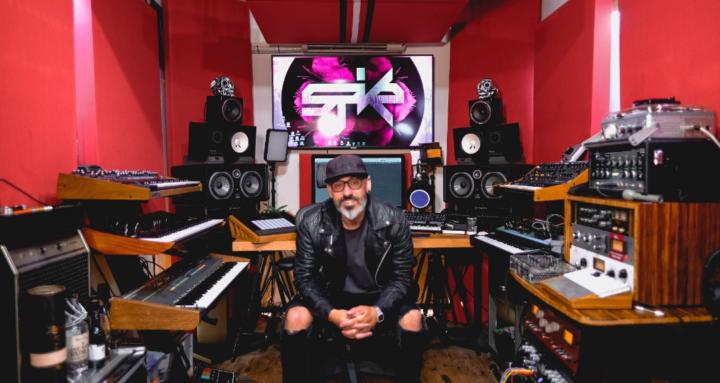
Write something
Suno
Well… love it or hate it, Suno has really become the second or third writer in the room! I think using it just to spit out prompts and call yourself a songwriter is pretty crappy and wrong. However — if you actually utilise the platform properly — it’s incredible what you can achieve with it. For example: My friend and artist Sir Augie will often take a pre-written song, a vocal acapella, or a completely new idea he’s just sung into his phone — no Auto-Tune, not perfectly in time, but killer lyrics and melodies. From there, we use prompts and styling, build a persona, and really spend time crafting the character and qualities of the vocals. Then we’ll generate a few different versions until we land on an interpretation we like.After that, we extract the stems, chop up the arrangement, and reshape it into something that feels right — and the best part? We add additional production and sprinkle our own style and flavour on top. Suno is still a bit one-dimensional when it comes to the mix and overall sonic uniqueness.The music, at this stage, still lacks a bit of character — but if you’ve been producing for a while, you can absolutely use it as a co-writer and elevate it with your own touch, sound design, and mix style. It’s honestly been a really fun process — 50% human, 50% AI — and it’s creating some insane results. Have you guys tried using it this way yet? Let me know what you think I’m actually digging it! One Love,Spike

AI Spotlight — AIVA’s “Emotional Profiles”: Is AI Feeling Now?
AIVA (Artificial Intelligence Virtual Artist) can now compose music according to explicit emotional profiles—like “melancholic nostalgia,” “vibrant optimism,” or “dark introspection.” It crafts entire instrumental pieces tailored to a mood or story prompt, and yes — they’re commercially usable. Why It’s Trippy: - Emotional Modeling, Not Just Sound Modeling. It’s composing with feelings—not just notes, but emotional intent baked into every chord progression, tempo shift, and texture change. - Storytelling on DemandNeed music to convey heartbreak or triumph? AIVA can generate music that feels like that instantly—like mood boards in musical form. - Lines Blurring Between Composer & CuratorAre you writing music, or curating emotional frameworks and letting AI fill in the notes? Your Move: - Got a short emotional prompt? Try AIVA (even free version), generate a quick piece, and share it here. - Debate time: Is this creative genius—or a shortcut that dilutes what it means to feel music? Let’s Debate: 1. Can emotion ever be coded into AI music and still feel real? 2. Does this empower quick creativity—or reduce music to mood presets you didn’t sweat over? 3. At what point does AI become the musician, and the musician just becomes the emotional mood selector? Let’s see who’s down to test feeling level dreams with AI—and who thinks emotional music should come from blood, sweat, and heart.
2
0
AI Controversy — Are AI-Generated City Pop Songs Killing the Genre’s Soul?
Let’s be real for a second: city pop has a vibe—nostalgic, lush, emotionally rich—and now AI is flooding the genre with cheap imitations. The New York artists and fans are calling it out as a soulless washout. According to Pitchfork, quality city pop AI tracks are drowning beneath a wave of generic, algorithmic copies. Some of them literally slip through recommendation algorithms because they sound close enough. But they lack the human nuance—those delicate guitar touches, expressive synth life, and organic imperfections that made the genre special. Why It Should Rattle You: - Cultural Erosion: AI isn’t just copying sound—it’s flattening cultural texture. City pop’s roots in Japanese ’70s–’80s jazz, funk, and emotion are being erased by bland, formulaic clones. - Platform Impact: YouTube and Spotify aren’t policing this—raw AI content floods feeds, diluting discovery and biasing attention toward convenience, not artistry. - Ethical Irony: AI tools can help you create in a city pop style—but do we want AI to replace the artists, or just assist them? Let’s Debate: 1. Are you hearing AI city pop on your feeds? How did it feel different? 2. Is AI erasing authenticity—or will fans eventually gravitate back when they feel something real? 3. Should platforms be responsible for labeling or filtering AI-genre imitations—or is that censorship? Sound off below—this is the front line of where AI meets creative culture, and if we don’t talk about it, we let the nuance vanish. With love - Spike
1
0

AI Spotlight — Magenta’s “AI Piano Improv” for Instant Inspiration
There’s a cool new tool from Google’s Magenta team called “AI Piano Improv”, and it’s a game-changer for writers block: - Upload a simple chord progression or snippet, and it improvises realistic piano parts—complete with subtle timing and expression. - You get realistic MIDI or audio output that feels human, not robotic. - Great for building quick ideas: throw in your whether you need a melodic hook, intros, or emotional flourishes. Why It’s Worth Your Time: - It’s fast—seconds to generate inspiring hooks that feel fresh. - Domain-agnostic versatility—works for lo-fi beats, ballads, film cues, you name it. - Perfect for layering—tossed under your main elements, it adds depth, emotion, and movement in seconds. Your Play: - Drop a barebones chord loop, let it run through AI Piano Improv, and post both versions for others to chop or swap in. - Challenge each other: “Best improv flip wins bragging rights.” - Or simply share what emotion or mood the improv sparked for your next move in the session. With Love - Spike
2
0
AI Spotlight — Lex Luger’s Signature Trap Sound… In an AI Model
Okay, fam—this one will either blow your mind or make your skin crawl. Legendary trap architect Lex Luger (you know, the guy who helped shape Kanye, Travis Scott, and the whole 808 Mafia sound) has released an AI-driven model that mimics his signature style. Available through the Lemonaide Seeds app, you can generate royalty-free MIDI or audio clips in his exact melodic phrasing, bounce, and chord choices—4 or 8 bars at a time, in any key. It’s basically getting a mini-Luger cameo in your DAW. Why It’s Wild: - Realistic DNA – This isn’t just generic “trap vibe.” It claims to replicate his flow, melody sense, and vibe. - Easy Integration – Use it in Seeds standalone or drop the plugin right into your project. - Royalty-Free...…until you blow up – Tracks stay royalty-free unless they pass 1 million streams or get major placements. Then additional licensing kicks in. - Luger’s own mixed feelings – He said it best: “I love it, but a part of me is a little afraid of it.” That tension alone is a teachable moment. Your Move: - Do you load in a Luger-style melody and build your track around it—or does that feel too close to imitation? - Is this a shortcut to creative freedom—or a shortcut past real musician growth? - How do you draw the line between borrowing a style and straight-up copying? Drop your thoughts below. I want to see who’s excited to experiment—and who’s feeling the creative fear. With Love Spike
2
0
1-15 of 15

skool.com/spikeleo
Free Course & Community For Those Wanting To Go Pro & Become A Full Time Music Producer. Learn How to integrate A.I, Mix & Finish Tracks & Make Money!
Powered by





